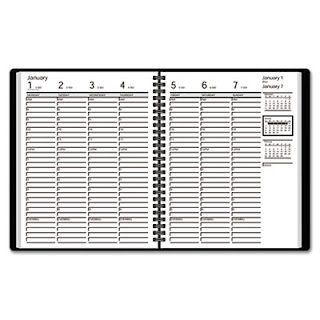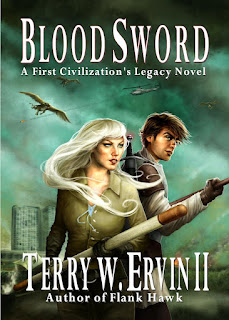My sincere thanks to each and every one of them!
And now... let the drum-roll commence...
I have the privilege of concluding this Awesome August by introducing an awesome Ninja! (Yes, the capital N is indeed warranted.) In fact, Super Ninja is less than an adequate description for Alex Cavanaugh.
I can't tell you how thrilled I was when he accepted my invitation. I would normally feel a bit guilty about exposing the identity of a ninja, but the only true secret here is how Alex manages to do so much for so many.
There exists more than one blogger who would be hard pressed to give a definition of "supportive" that didn't include his name. He's just that awesome!
Successful Blogging
by
Alex J. Cavanaugh
Jeff graciously asked me to contribute to this month-long awesome feature and I’m here to talk about blogging. You’ve already read so many great tips from other guests this month. You know about turning off word verification, getting involved in blogfests, making it easy for others to follow you, short posts, etc. What more could I add?
I can’t add a lot. But maybe I can give you something new to think about.
What does it take to be a successful blogger?
A blog with a purpose – Your blog needs a focus. And it doesn’t matter what the focus. Don’t feel obligated to offer writing tips if you’re a writer. (Lord knows I don’t!) What topics excite you? What are your passions? Make those the focus of your blog and you will never run out of enthusiasm or material.
Followers – Without followers, we are just talking to ourselves. (Which is really weird if you think about it.) But you can’t gain followers just by following others. You need to engage. You need to follow and comment on the blogs of others. Go make some real friends.
Involvement – You can’t just follow a few people and expect everyone to show up to your party. (Unless you’re offering free food and drink of course.) You have to get involved. There are so many blogfests, challenges, campaigns, and other opportunities in which to meet other bloggers. Involvement means getting to know your fellow bloggers as well. Become part of this awesome community.
Support – Give your support to others. Be a positive force, not a negative one. Encourage your blogger buddies. When they achieve something great, cheer them on. Mention their accomplishment on your blog. Send out a Tweet on Twitter. You have to be willing to give to others if you hope to succeed.
Being genuine – You must be true to you and true to others. You need to be honest but with tact. You need to be transparent without sacrificing your privacy. You need to be positive but not sticky-sweet fake. You need to be consistent in all things. Be the light everyone wants to follow.
Everyone wants to know the secret to blogging success, but there isn’t one. Be a friend. Be a genuine friend. Be someone who is consistent and dependable. Be the person you’ve always aspired to be!
And if all else fails, free Hot Tamales are always an option. (Hey, works on me!)
About Alex J. Cavanaugh:
 Alex J. Cavanaugh has a Bachelor of Fine Arts degree and works in web
design and graphics. He is experienced in technical editing and worked
with an adult literacy program for several years. A fan of all things
science fiction, his interests range from books and movies to music and
games. Online he is the Ninja Captain and founder of the Insecure
Writer’s Support Group. The author of Amazon Best Sellers, CassaStar and
CassaFire, he lives in the Carolinas with his wife.
Alex J. Cavanaugh has a Bachelor of Fine Arts degree and works in web
design and graphics. He is experienced in technical editing and worked
with an adult literacy program for several years. A fan of all things
science fiction, his interests range from books and movies to music and
games. Online he is the Ninja Captain and founder of the Insecure
Writer’s Support Group. The author of Amazon Best Sellers, CassaStar and
CassaFire, he lives in the Carolinas with his wife.Connect with Alex at:
His Blog: http://alexjcavanaugh.blogspot.com/
On Twitter: http://twitter.com/AlexJCavanaugh
Alex's Books:
CassaFire - Science fiction - space opera/adventure
Book Trailer - On YouTube
CassaStar was only the beginning…
The Vindicarn War is a distant memory and Byron’s days of piloting Cosbolt fighters are over. He has kept the promise he made to his fallen mentor and friend - to probe space on an exploration vessel. Shuttle work is dull, but it’s a free and solitary existence. The senior officer is content with his life aboard the Rennather.
The detection of alien ruins sends the exploration ship to the distant planet of Tgren. If their scientists can decipher the language, they can unlock the secrets of this device. Is it a key to the Tgren's civilization or a weapon of unimaginable power? Tensions mount as their new allies are suspicious of the Cassan's technology and strange mental abilities.
To complicate matters, the Tgrens are showing signs of mental powers themselves, the strongest of which belongs to a pilot named Athee, a woman whose skills rival Byron’s unique abilities. Forced to train her mind and further develop her flying aptitude, he finds his patience strained. Add a reluctant friendship with a young scientist, and he feels invaded on every level. All Byron wanted was his privacy…
CassaFire is the sequel to Cavanaugh’s first book, CassaStar, an Amazon Top Ten Best Seller: It's available at Barnes and Noble, Amazon, Amazon Kindle, and B&N Nook
 CassaStar
CassaStar Book trailer - On YouTube
“…calls to mind the youthful focus of Robert Heinlein’s early military sf, as well as the excitement of space opera epitomized by the many Star Wars novels. Fast-paced military action and a youthful protagonist make this a good choice for both young adult and adult fans of space wars.” - Library Journal
CassaStar is available at Amazon, Barnes and Noble, Amazon UK, Amazon Kindle, and B&N Nook


































